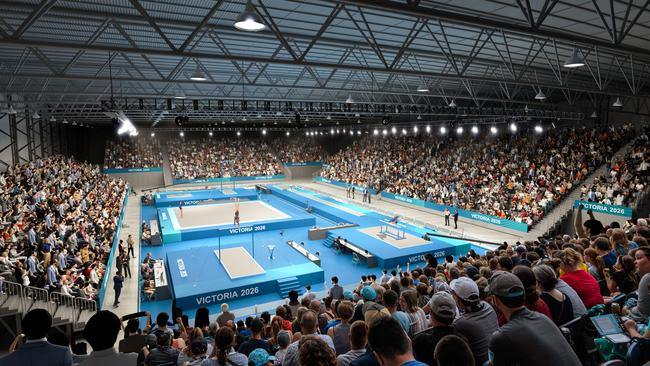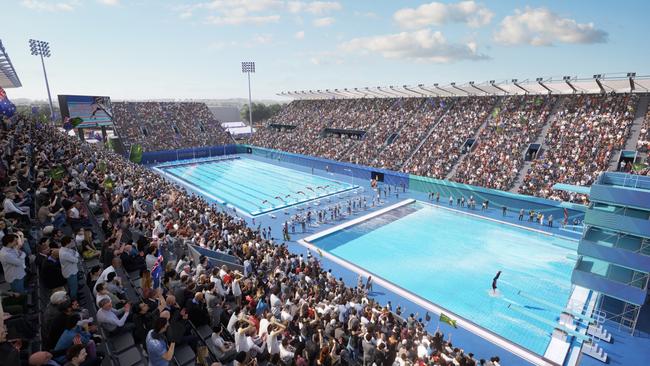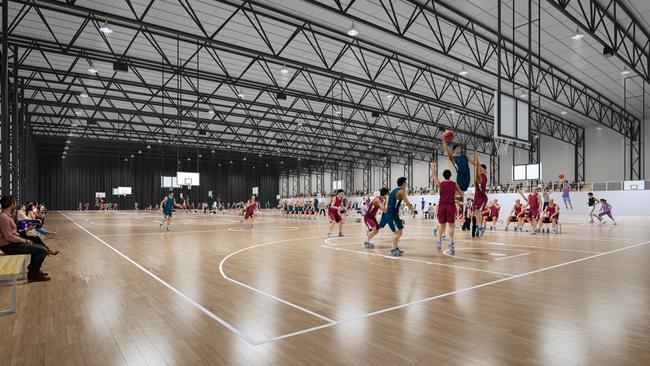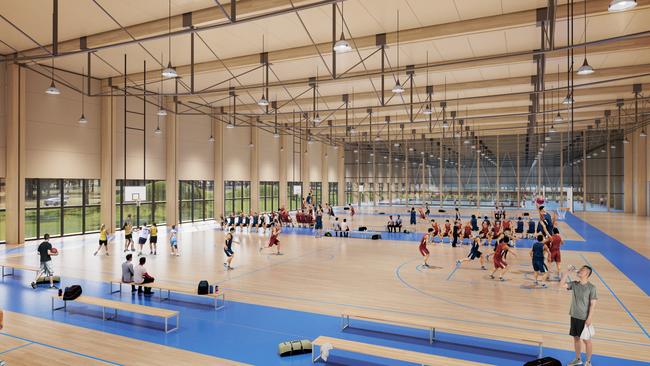Commonwealth Games to ignite unprecedented rural construction boom
Athletes villages will be built in four Victorian towns, with 7000 Commonwealth Games competitors and officials to descend on the regions.
Victoria
Don't miss out on the headlines from Victoria. Followed categories will be added to My News.
New properties will be built across regional Victoria to house athletes and officials during the 2026 Commonwealth Games in an unprecedented rural construction boom.
School camps and boarding houses could also be converted into temporary worker villages to free-up hotels and motels for spectators.
Rural and First Nations businesses have been told they will be backed to target the dozens of tenders opening this year, to also include supply of sports equipment, uniforms, merchandise, drug testing facilities and even medals.
Planning has already begun for four village sites – Ballarat Saleyards, the Waurn Ponds station precinct on the outskirts of Geelong, Flora Hill in Bendigo and English St, Morwell – as officials race to create suitable accommodation for almost 7000 participants. This includes 2500 athletes and officials to be housed in Geelong, 1600 in Bendigo, 1800 in Ballarat and 1000 in Morwell.

Competitors in BMX and cycling road races at Shepparton will stay in Bendigo, with drivers commissioned to transport them to their events.
In a recent presentation to businesses, Games services chief Kate Matson said it was expected 400,000 visitors would flock to the state.
However, spectators would not be encouraged to crisscross between regional cities in a single day due to accommodation and transport issues. Instead they would be urged to visit each “hub” separately and stay the night, or stay in Melbourne and take day trips.
“Limited accommodation in regional Victoria, which we are well aware of, will put additional pressure on Melbourne as a solution,” Ms Matson said.
“We are not going to suggest or advertise that you can get to swimming in Geelong in the morning and the rugby sevens in Gippsland in the afternoon. That would be pretty difficult, not to mention extremely expensive.” Games organisers have also identified a likely shortage of workers will need to be addressed for the 2026 event, which is being held across multiple cities for the first time.

Discussions with the federal government are looking at potential temporary visas in under-resourced sectors, such as security.
Major infrastructure is also planned, including aquatics and gymnastics centres worth a combined $292m to be built near Geelong.
During the Games it is expected there will be 3900 jobs created, putting further pressure on local housing.
“We are looking at things like temporary workforce villages, standing them up,” Ms Matson said. “Not quite Qatar-solutions, but something similar where we might even be able to repurpose it with our friends at Homes Victoria or even Emergency Recovery Victoria in the future.
“I am not going to take all of our motel and hotel accommodation (for workforce) … I’m looking at school camps, I’m looking at boarding schools, I’m looking at a whole bunch of places that spectators wouldn’t be able to book.”


In Qatar for the recent soccer World Cup, tent villages were erected to house visitors.
Ms Matson also said an audit showed accessible accommodation across Victoria was “lacking”, which would need to be addressed.
Commonwealth Games delivery minister Jacinta Allan said construction of units for athletes would begin this year, although exact numbers were being finalised.
“We will have strong local procurement targets so regional Victorian businesses and First Peoples’ businesses can get their fair share of the opportunities as we build up to the Games,” Ms Allan said.
Social services groups have called for some accommodation built for the event to be set aside for vulnerable Victorians as a Games “legacy”, which Ms Matson said was under consideration for each site.
Originally published as Commonwealth Games to ignite unprecedented rural construction boom




